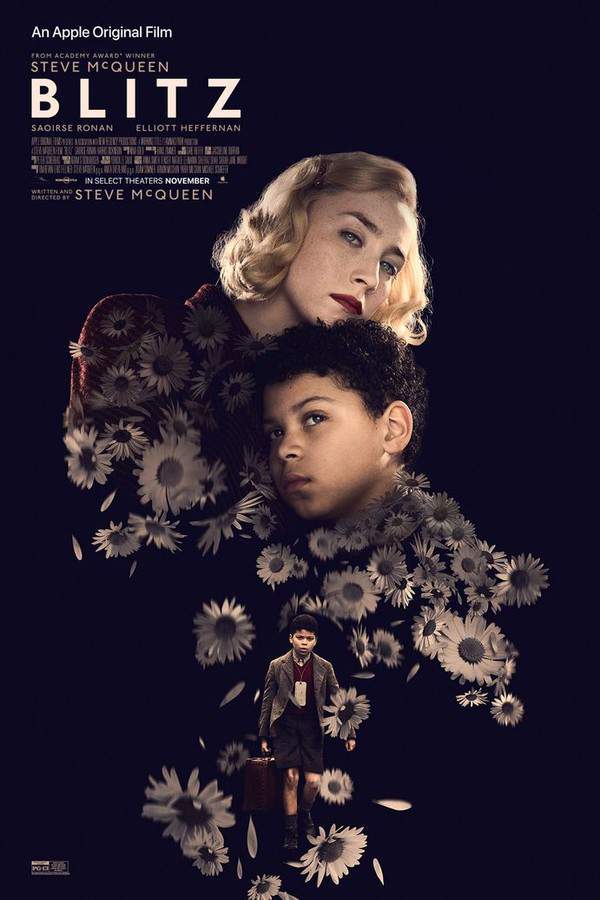What's After the Blog?
Opinions • reception
Blitz Review: Critics' Opinions and Reception of the 2024 Film
This blog post delves into the reception and reviews of Blitz, highlighting fan reactions to its heartwarming storytelling and the incredible performances of its cast. Explore the film's impact in a standalone context amidst fervent critic reviews and audience responses.
June 11, 2025

Movies mentioned in this article
Exploring the Reception of Blitz (2024): User and Critic Opinions Analyzed
In the world of cinema, the reception of a film can often dictate its legacy far beyond its box office earnings. The recently released Blitz (2024) has generated a myriad of reactions from both critics and audiences, marking it as a topic of heated discussion across various platforms. From its historical context encapsulated within World War II to its portrayal of race and resilience, Blitz has sparked diverse opinions. In this blog post, we’ll dive into the rich tapestry of views surrounding Blitz, showcasing what critics and users alike are saying about this thought-provoking film.
Critical Perspectives on Blitz: A Mixed Bag of Praise and Critique
Critics have been divided in their assessments of Blitz, showcasing both appreciation and disappointment. For instance, the New York Post points out that while McQueen’s script exhibits moments of “obviousness,” it simultaneously nurtures “understated and heartfelt performances” from the lead actors, Saoirse Ronan and Elliott Heffernan. This sentiment echoes the view of The Boston Globe, praising the production design and cinematography, which they claim superbly immerses viewers into the harrowing atmosphere of London during the Blitz.
Conversely, some critics like ABC News suggest that the film falls short of greatness, indicating that it struggles to “fully engage” with the deeper implications of experiencing war through the eyes of a mixed-race child. The Washington Post argues that while Blitz excels in production design, it fails to present a compelling narrative. This mixed response reflects a significant trend in the reviews—while the aesthetics are commended, the story often seems lacking in depth and coherence.
The divergences in critical reception hint at varying expectations from the film. Some critics view it as an emotional journey deserving recognition, while others see it as a missed opportunity to probe more profound themes, reminding readers of the film’s potential to explore its significant historical context more deeply.
Audience Reactions: A Spectrum of Emotions in Response to Blitz
The audience response to Blitz has also been multifaceted, reflecting a wide gamut of emotional reactions. Users on platforms like Metacritic express a mix of personal connections to the story and frustrations with its execution. One user, identified as SayreTX, found the film to be “a compelling look at life during the WWII Blitz attacks in England,” recognizing its unique focus on a black/immigrant perspective that’s seldom depicted in cinema.
However, contrasting views emerge from individuals who felt alienated by its portrayal. For example, Dirmagnos remarked that Blitz displays a “fictionalized manner” of historical events, criticizing its racial lens and suggesting that the narrative’s pacing is erratic. User reviews highlight how the film may resonate differently depending on individual experiences and expectations surrounding themes of race and historical representation.
This disparity indicates that Blitz might resonate strongly with certain demographics - particularly those seeking authentic narratives reflecting marginalized voices within the historical context. However, other viewers might leave feeling unsatisfied due to perceived biases or narrative curiosities that overshadow the central story.
Visual Aesthetics vs. Storytelling: The Dilemma Facing Blitz
One of the most lauded aspects of Blitz is its visual presentation. Critics from various platforms have lauded its cinematography and production design, noting how the film deftly captures the grim reality of wartime London. The Boston Globe highlights how these elements collectively immerse the audience in the shelters and Tube stations, evoking powerful imagery of survival amidst chaos.
However, the effectiveness of this visual storytelling has been countered by critiques surrounding its narrative focus. The Chicago Tribune notes how McQueen navigates a blend of stylized imagination and historical accuracy, yet feels the film often lands in a “trickier realm,” suggesting that it sometimes sacrifices depth for stylistic choices. Critics often emphasize that while striking visuals provide an engaging canvas, the lack of a cohesive and compelling narrative undermines its overall impact as a historical drama.
On the other hand, user royalguy07 echoes similar sentiments regarding the film’s cinematic qualities but expresses disappointment with the narrative mechanics, indicating a yearning for a more gripping storytelling experience in relation to historical events. This point brings attention to the crucial balance filmmakers must achieve between aesthetics and storytelling, something Blitz struggles to maintain.
Engaging with Themes of Race and Identity in Blitz (2024)
Blitz attempts to engage with complex themes of race and identity, showcasing the struggles faced by a biracial boy amidst the backdrop of World War II. Critics and audiences alike have remarked on this aspect, declaring it an admirable ambition. For instance, Brent_Marchant acknowledges the film’s attempts to weave in the fragile dynamics of race relations in a wartime context, even though other users critique it as “racist revisionist trash.”
The film’s focus on a mixed-race child’s experience exposes significant societal issues that merit discussion. Critics’ reviews suggest that this could have been a powerful angle if the execution had met the expectations. For instance, ABC News indicates that the film could have engaged more deeply with “the starker implications” of its themes but ultimately didn’t resonate as profoundly.
In examining audience responses, some viewers appreciated the perspectives presented, seeing value in the storytelling that focuses on marginalized voices. However, vocal dissatisfaction over the film’s perceived biases signals that the handling of race relations may not strike the right chord with all viewers. Ultimately, Blitz serves as a catalyst for a deeper conversation about historical narratives and representation in cinema, highlighting society’s continuing struggles with race and identity.
Conclusion: The Complex Legacy of Blitz (2024)
The multifaceted responses to Blitz demonstrate that it occupies a complex space in the cinematic landscape. While it boasts striking visuals and noteworthy performances, its narrative shortcomings have left both critics and audiences divided. The engagement with race and identity, albeit ambitious, remains a point of contention, illustrating the diverse expectations that viewers have for historical dramas.
As we reflect upon the rich tapestry of opinions surrounding Blitz, it’s evident that the film sparks crucial dialogues not only about World War II but also about representation in cinema today. Whether viewing it through a critical lens or as an emotional journey, Blitz serves as a significant conversation starter. For more insights regarding Blitz, consider visiting the What’s After the Movie site for summaries, quizzes, and more exclusively about your favorite films!
| Movie Resources | Links |
|---|---|
| Metacritic | Metacritic |
| Rotten Tomatoes | Rotten Tomatoes |
| IMDb | IMDb |
| TMDb | TMDb |
| Wikipedia | Wikipedia |
| Just Watch | Just Watch |
| Box Office Mojo | Box Office Mojo |
| Letterboxd | Letterboxd |
| Movie Insider | Movie Insider |
| Common Sense Media | Common Sense Media |
Continue reading

What's After the Movie?
Not sure whether to stay after the credits? Find out!
Explore Our Movie Platform
New Movie Releases (2025)
Famous Movie Actors
Top Film Production Studios
Movie Plot Summaries & Endings
Major Movie Awards & Winners
Best Concert Films & Music Documentaries
Movie Collections and Curated Lists
© 2025 What's After the Movie. All rights reserved.








